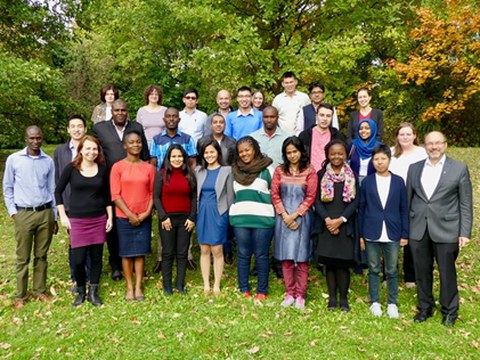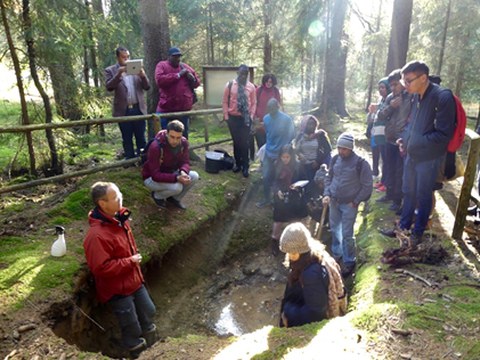Nov 14, 2017
Successful International Training Course – “Soil and Land Resources”

CIPSEM Teilnehmer 2017
Successful International Training Course – “Soil and Land Resources”
For 4 weeks in October and November, 23 experts from 17 emerging and developing countries took part in the international training course “Soil and Land Resources for Sustainable Development”. Organization of the course was conducted by the “Centre for International Postgraduate Studies of Environmental Management – CIPSEM”, an institution of the Faculty of Environmental Sciences. The UNEP/UNESCO courses are financially supported by the Federal Ministry for the Environment, Nature Conservation, Building, and Nuclear Safety (BMUB). Conception and implementation were carried out at the ‘Institute of Soil Science and Site Ecology’ in Tharandt, with Prof. Karl-Heinz Feger and Prof. Karsten Kalbitz playing directing the course.
The course participants learned intensively about the theoretical and practical approaches to the protection and sustainable use of soil and land resources. A central theme was soil assessment and classification, with consideration of strategies for sustainable land use (including the importance of forestry and agroforestry for erosion and water protection), as well as limiting soil degradation and sealing. These internationally important and urgent issues related to soil/land resources and land-use are the focus of many of the 17 Sustainable Development Goals (SDGs) of the United Nations. For example, Goal 15 focuses on protecting, restoring, and promoting the sustainable use of land ecosystems and sustainable forest management, as well as combating desertification, stopping and reversing land degradation, and halting the loss of biodiversity. The importance of soil protection is also addressed in connection with securing the nutrition needs of a steadily growing world population, the supply of drinking water in sufficient quantity and quality, as well as the disposal or reuse of wastewater.

Practical work with soil profiles in the Tharandt Forest.
The course program consisted of lectures, seminars, group discussions, and practical exercises with lecturers from TU Dresden, but also from all over Germany, including TU Berlin, TU Munich, University of Halle-Wittenberg, as well as international institutions in the Netherlands and Kenya. The program also included several excursions, including visits to the Federal Environment Agency in Dessau, the Helmholtz and Leibniz centers in Berlin, Müncheberg, and Potsdam; as well as visits to agricultural and forestry facilities in Saxony.
Practical work with soil profiles in the Tharandt Forest.
Further information about CIPSEM:
